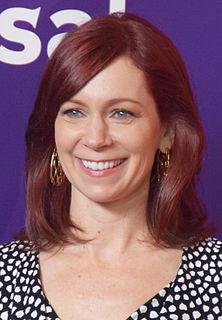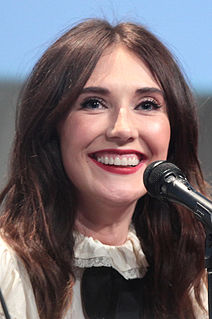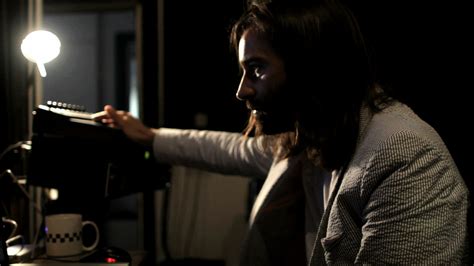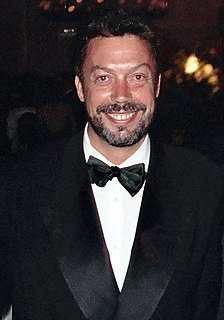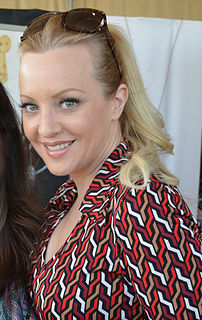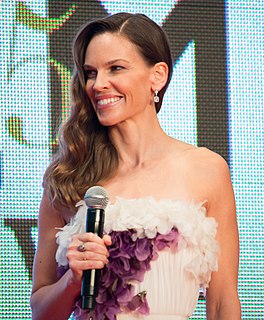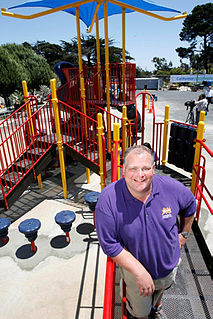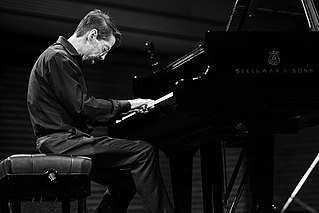A Quote by Carrie Preston
A lot of times, in film and TV, they just want you to play yourself. But, when you're someone who's more of a character actor, you get to experience what it feels like to play a bunch of different kinds of people. I find it more invigorating than challenging. I definitely trust the writers to give me the material that I will take and turn into the person that I'm playing.
Quote Topics
Related Quotes
Sometimes perception is almost more important than the skill level of an actor. And if you give too much away, you have nothing to take for yourself and put onscreen. If people feel like they know you too well, they won't be able to indentify with the character you're trying to portray. Or they'll feel that you're just playing yourself, and then you just become a personality actor. And that's the death of any actor.
You get to know a character that you play on-stage in a pretty profound way over a length of time. I don't want to sound highfalutin and say you become the character, you just start bringing more and more of yourself to the part until the character and actor, it's hard to tell them apart. It's some weird amalgam. In film, because of the period of time, I don't know that you ever get that deep into it.
Just look around, in life, there's people who want to date people who look like themselves, and there are people who are just looking for a good fit. And a lot of times, a good fit is someone different than yourself. I'm not one to get too hung up on outside appearances. I find people attractive for more subtle reasons than just the way they look.
If you know what it is before you even start, it's not as interesting. Central to being an actor is pretending, and the adventure of it all. That's why you become a junkie for different kinds of situations. I try to attach myself to people who really inspire me, and directors who are really passionate. That way, I can give myself more fully and trust the impulse behind why the film is being made, and I can be a little more irresponsible in finding out what the character is. I have to worry less about what the character means if I trust the director.
In my years of working in theatre and TV I've learnt that my main skill is not the instrumental playing but the idea of what to play and my interest for so many kinds of music. Often people ask me to contribute to projects when they don't stay in just one genre. I feel more like a composer who just has to play his own things.
Improv is more than just spitting out a bunch of funny stuff that's unrelated to the material. You have to stay in character, you have to react and respond as the character you're trying to play. You have to service the story, and I think improv training has helped with my listening, responding, and my audition technique. It's sounds so silly, but it's true. Because not only do you improvise during the audition, but once you get the part, they'll say, "Throw away everything. Just improv this scene. Do whatever you want." Someone could panic if they're not used to doing something like that.
A lot of guys in New York will only play with an edge. They find their groove and that's their groove. to me, once I do that, there's no point in playing anymore because it should always be a mystery. Depending on who you are playing with, there are hundreds of ways of playing. I think that a master can play all those different kinds of time.
I like playing at public schools. I like when there's more of a diverse audience. I'll play wherever people want to hear my music, and I'll be glad and grateful for the opportunity, but I'd rather not play for a bunch of white privileged kids. I'm not meaning that in a disrespectful way; you go where people want to hear your music. So if that's where people want to hear me play, I'm glad to play for them. But I'd rather play for an audience where half of them were not into it than one where all of them were pretending to be into it, for fear of being uncultured.
There comes a point when you've exhausted your opportunities playing good guys. I've been around long enough, I think I'm entitled to explore a bit. But what I saw there was an opportunity to play a character different from what the audience's expectation was. A chance to take their crude experience of me - of my iconography, if you will - and turn it on its ear at an appropriate juncture in the film to be useful to the process of telling the story.
